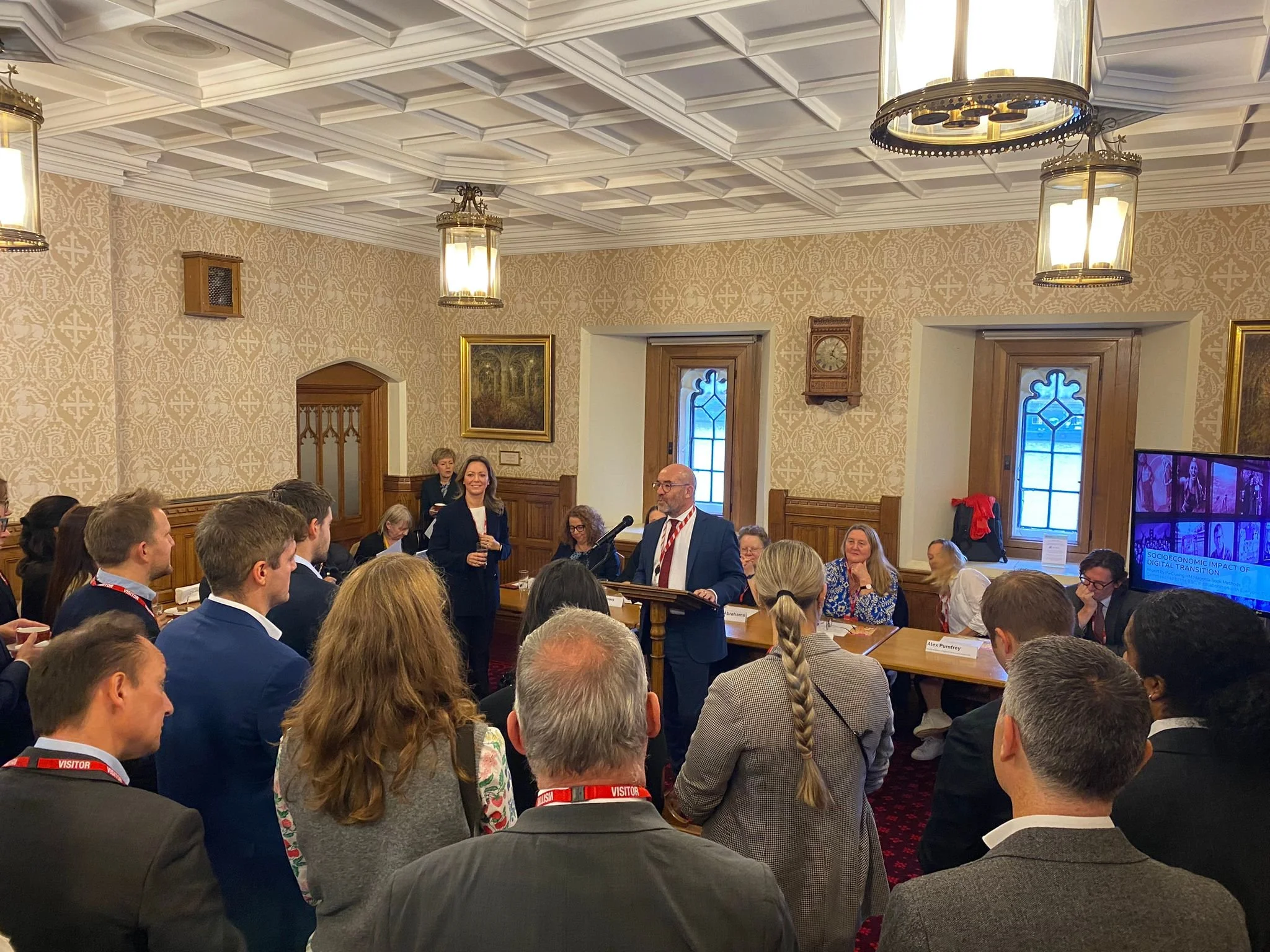Event Report: Socioeconomic Impact of Digital Transition with the BBC
Lord Knight opened proceedings and welcomed Nadia Vinokur to present on the PwC’s 2025 report, commissioned in partnership by the BBC and Everyone TV, using HM Treasury Magenta Book methods to evaluate the potential of a transition to a fully online future. In commissioning the report the BBC aimed to explore whether a managed transition to internet-based television (IPTV) could unlock broader socioeconomic benefits for the UK - not just for TV audiences, but for digitally excluded groups across society.
The opening presentation displayed the key findings of the report, including figures on potential estimated Gross Value Added (GVA) from increased productivity and employment and net gains to the Exchequer through higher tax revenues and reduced welfare spending. The key take-aways shared were:
A managed transition to IPTV, with an intervention to help digitally excluded groups, can help unlock some of the benefits of digital inclusion
Widespread online access is the only way to deliver full universality as everyone will be able to access all TV and radio services
With the right support programme and targeted product innovation, an IPTV switchover could become a pivotal moment in a digital transition
Panel
Following the opening presentation, Helen Milner (CEO of Good Things Foundation) chaired a panel to discuss further the impact of the report’s findings. The panelists were:
Gill German MP, Co-Chair of Digital Inclusion APPG
Caroline Abrahams, Charity Director of Age UK
Helen Burrows, Controller of Distribution at the BBC
Alex Pumfrey, Former Director of the UK’s Digital TV Switchover Programme (now ITV’s Strategic Partnerships Director)
Alex Towers, Director of Policy and Public Affairs at BT
The panel discussed the Digital Switchover and its progress, lessons from successful digital support programmes for the future digital transition, what a digitally included nation would look like and must include, and the steps that Government and industry can take to reach that point. Panellists emphasised the need for a conjoined approach to digital inclusion, where the Government does not silo TV, healthcare, digital ID and more into separate missions, but tackles the digital transition in one go to ensure efficient and effective support. Panellists also indicated that they believed a digital switchover is possible, and IPTV can play an important role in encouraging that change. Further, panellists maintained that the need for open communication and the human connection must remain at the heart of a user-centred digital transition and they reflected on the challenges that may be faced, including the affordability of digital inclusion for both Government and individuals.
Following the panel, the floor was opened to a Q&A session with questions from MPs, parliamentary staff, the third sector and industry voices. Themes raised included:
The importance of agency and dignity, particularly for older people who lack confidence and trust
The actions Government can take to encourage a smooth digital transition, and the cost to Government
Fears and opportunities arising around AI
Ensuring a focus on skills and digital literacy, as well as digital confidence building
How we can tackle those are not digitally excluded, but are still not digitally adept


